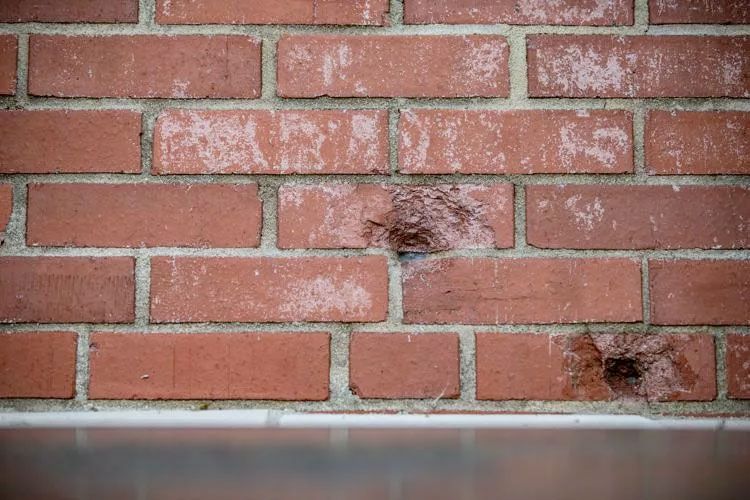The Day the National Guard Raided an HBCU Dorm

A portion of the bullet-ridden, exterior wall of Smith Hall still stands in commemoration at North Carolina Agricultural and Technical State University. Khadejeh Nikouyeh/News & Observer
This is why Black history needs to be taught
By Gina Miller, contributing writer for SunShower Learning
Our
nation’s schools have an incredible responsibility when it comes to
honoring Black History Month. All too often, they use a “heroes and
holidays” approach. While this may be well intended, it has the effect
of making Black students feel othered, as though they exist outside of
the actual curriculum. A better approach would be to incorporate Black
stories and voices into the year-round curriculum – and to incorporate
Black students into the everyday classroom.
Another problematic approach is to
relegate Black History Month to a historical rundown that serves to
retraumatize Black people. I’m about to share a personal experience
that I hope will not do just that. I feel compelled, however, to
provide evidence of the incredible responsibility our educational system
has to tell all sides of history. I feel strongly that an equitable
curriculum teaches that Black history did not begin with slavery; it
also depicts the violence and oppression that Black Americans have
endured, thereby contextualizing the current-day economic and social
outcomes that sit squarely in the long shadow of history.
Earlier this week, I participated in a
tour of North Carolina Agricultural and Technical State University
(N.C. A&T), a Historically Black College and University (HBCU), with
my son. During the tour, we learned – for the very first time – about
how N.C. A&T became the site of one of the largest, most violent
government occupations of an American college campus, complete with tear
gas, bullets and tanks. It was May of 1969, and a protest was underway
in response to the latest racial injustice at a local high school. A
decision had been made by the faculty-student election committee to deny
the name of a Black student on the ballot for student body president
despite the fact that he had triple the number of votes as compared to
the opponent who ended up being elected. When the Greensboro police
arrived to disperse the protesters, they fired tear gas and bullets at
the students. The National Guard soon arrived and began a sweep of
Scott Hall, where many innocent students were sleeping. One student
described, “young men running, trying to avoid being shot” and “pounding
their fists on the doors of the dorm, begging to be let in so that they
could escape the gunfire.” Amid the chaos, N.C. A&T sophomore
Willie Grimes was fatally shot in the back of the head. As one of his
instructors mournfully stated, “he was here for education. I think he
was trying to get home when he was shot.”
As I stood there, staring at the
bullet-ridden remnants of the building and reading the commemorative
plaques, I contemplated the incredible responsibility of our educational
leaders. As Paulo Freire said:
“There’s no such thing as neutral education. Education either
functions as an instrument to bring about conformity or freedom.”
Education can disregard; it can
restrict; it can misrepresent. It can outright omit historical events,
such as the shooting at N.C. A&T. It can exacerbate race and class
disparities and serve an agenda of continued oppression and inequity.
On the flip side, education can dismantle systemic racism and drive
equity of opportunity. It can provide the tools to build more just,
equitable societies and, in so doing, shape the nation and the world for
the better.
As we celebrate Black History Month, I implore today’s educational leaders to acknowledge their incredible responsibility to teach all sides of history, dismantle systemic racism and drive equitable educational outcomes for all children. And I implore them to incorporate Black history into the everyday curriculum and the everyday classroom experience until doing so is no longer a bold action that must overcome incredible resistance. (I’m looking at you, Governor DeSantis.) Black history is our collective history, not to mention that Black history is the ongoing pursuit of truth and justice for all. It is worthy of honor indeed.

